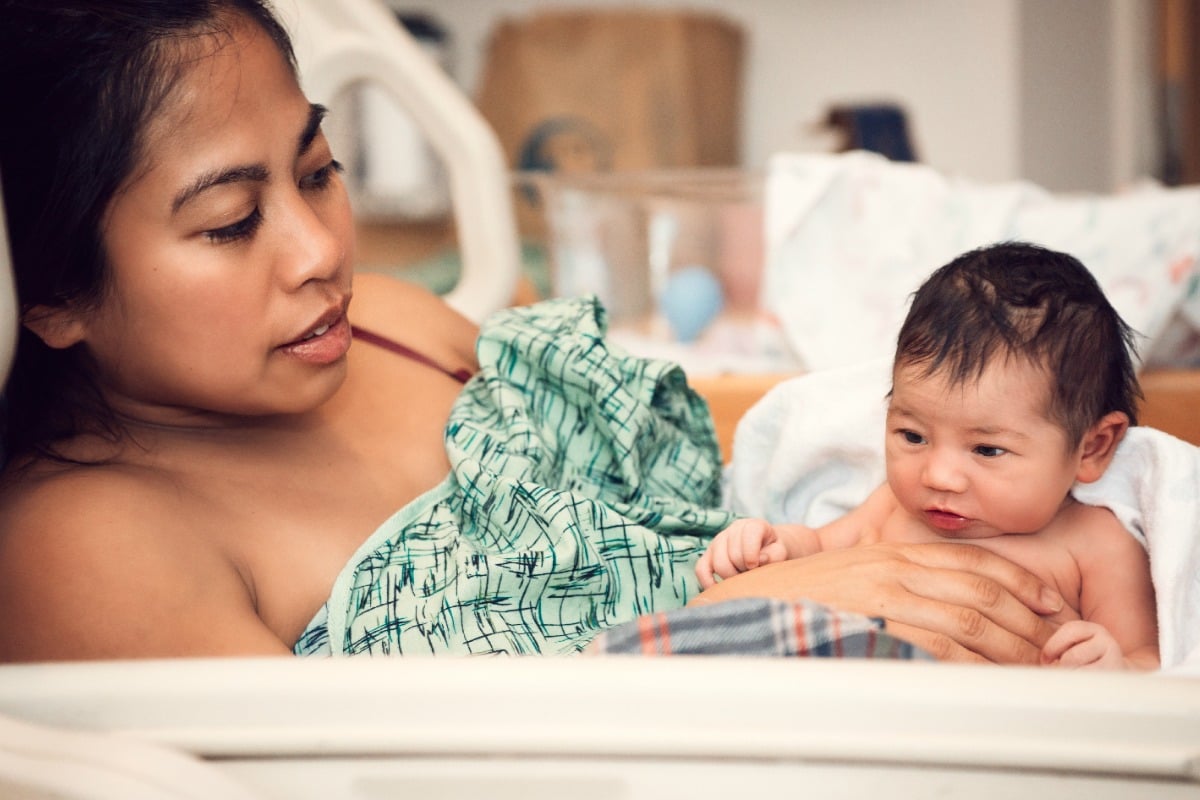
Every year in Australia more than 300,000 babies are welcomed into the world.
If you’re an anglo Australian, unless you have close friends from different cultural or religious backgrounds, your experience with birth probably looks pretty similar to what we might see on mainstream TV.
The Quicky explored different birth experiences. Post continues after podcast.
We’re aware of waterbirths, natural births, home births, births where mums choose to go pain free, caesarians, epidurals, forceps deliveries, the public system, the private system, midwife support – the list goes on.
But the experience of giving birth can be a very different ballgame if you add in the customs and cultures of your birth country or faith.
Muslim birth
Mona is Muslim Lebanese, while her husband is Aboriginal African.
As she explained to Mamamia’s daily podcast The Quicky, her faith allows her to only have women in the birthing room.
“If we have to have a doctor, if it was really essential and there were only male doctors I would accept that, and we’re allowed to accept that. But if we have the option of a female doctor we take that,” she explained.
Mona admits that when she gave birth three weeks ago she was naked, but Islamically speaking they are supposed to try and stay modest.
“But you’re not going to be judged for not being modest, obviously what you’re going through is hard and our creator knows that, he created the process,” she said.
In the Muslim faith, regular prayer is a big part of the religion, but as Mona told The Quicky host Claire Murphy, “There’s mercy in everything”.

Top Comments
There are some really beautiful traditions around the world that seem to really treat birthing as a magical experience and new mothers as goddesses! Whilst I am sure it wouldn't suit everyone, I wonder if these sorts of traditions and nurturing of the mother (as well as the baby) contribute to the mental health and wellbeing of the new mum? It would be interesting to research this.
'I wonder if these sorts of traditions and nurturing of the mother (as well as the baby) contribute to the mental health and wellbeing of the new mum?'
I absolutely guarantee that they do, yes.
Super interesting!
Agreed, I'd love to hear more, and in more detail!